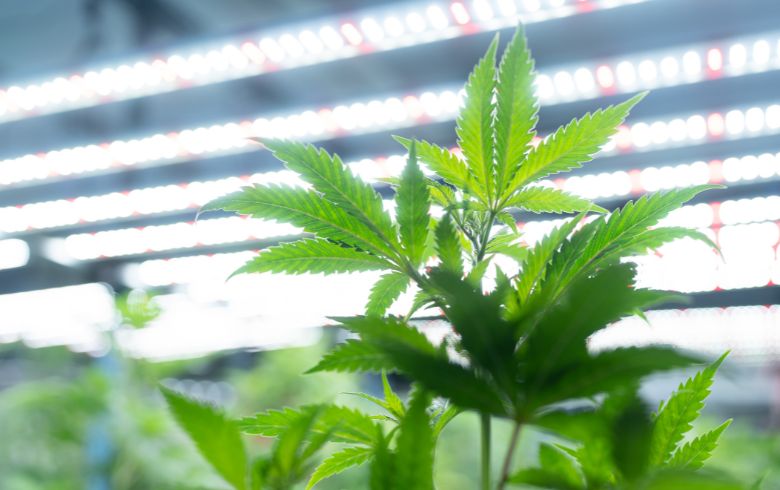Selecting the best soil for for marijuana plants outdoors is an essential step for any grower looking to maximize the potential of their plants. The quality of the soil is one of the most important factors as it not only influences the health and growth of the plants but also the quantity and quality of the harvested fruits. The selection of the best soil for outdoor cultivation will depend on the needs of each type of plant, requiring a high-quality substrate.
Types of soil for marijuana plants outdoors
Choosing the right type of soil is essential for successful outdoor cultivation. Each soil has specific characteristics that influence the development of plants.
Clay soils
Clay soils are dense and can retain a lot of water. Despite their ability to retain nutrients, their density can hinder drainage and aeration, challenging root growth.

Sandy soils
On the other hand, sandy soils facilitate excellent drainage and are easy to work with. However, they often require more fertilization and frequent irrigation due to their low water and nutrient retention.
Loamy soils
Loamy soils are considered ideal for most crops due to their high fertility and good moisture retention. Their fine, smooth texture allows for adequate drainage and easy tillage.
Calcareous soils
Calcareous soils have a high calcium content and generally high pH. They are beneficial for crops that tolerate alkaline conditions but may require pH correction for others.
Peaty soils
With a large amount of organic matter, peaty soils are extremely fertile. Their ability to retain water makes them suitable for areas with low precipitation, although they may be too acidic for some crops.
Saline soils
Saline soils are characterized by the accumulation of soluble salts, which can be toxic to many plants. Careful water management and possibly soil flushing are necessary to cultivate in these conditions.
Factors affecting soil quality
Several elements are crucial in determining soil quality in an outdoor space. These factors directly influence the productivity and sustainability of crops.
Soil pH
Soil pH is decisive as it affects nutrient availability. Extremely acidic or alkaline soil can limit plant growth by restricting access to essential nutrients.
Soil structure
Soil structure refers to how soil particles are grouped. Good structure allows for adequate air and water circulation, essential for plant roots.
Water retention capacity
Water retention capacity is vital. Soil with good retention maintains necessary moisture without reaching saturation, which could cause root asphyxiation and disease proliferation.
Fertility and nutrients
Fertility and nutrients are the basis of prosperous soil, providing essential elements for plant growth.
Organic matter in soil for marijuana plants outdoors
Organic matter improves soil structure and long-term nutrition. Its decomposition gradually releases nutrients, promoting sustainable fertility.
Presence of microorganisms
Microorganisms play a fundamental role, breaking down organic matter and facilitating nutrient absorption by plants, positively impacting soil health.
Best type of soil for marijuana plants outdoors according to climate
In outdoor crops, it is important to consider the best soil for marijuana plants outdoors in growing conditions. Thus, distinctions are made:
- Warm climates: In these cases, cannabis plants will require more water or continuous irrigation. Therefore, the best soil for marijuana plants outdoors in these cases will be one with a balanced substrate aeration and water retention. For this, coconut fiber or perlite substrate can be used.
- Cold climates: Vermiculite or perlite can be used to protect the root system from the cold.
On the other hand, in guerrilla cultivation, it is recommended to use black peat to retain water and fertilize the soil, gradually providing the necessary nutrients. Likewise, for organic cultivation, blonde peat can be used to have enough material to decompose and proper irrigation.

Selection of suitable crops
Depending on the soil available, the correct choice of crops will be key to obtaining a quality result. Besides, each plant has unique characteristics that determine its suitability for soil and external climate conditions.
Adaptability according to soil type
Crops vary in their tolerance to different types of soil. Some require clayey soils, while others thrive better in sandy or loamy soils. Soil texture and pH are determining factors for plant suitability, influencing their ability to absorb nutrients and water.
Water and nutrient requirements
Different plant varieties have specific water and nutrient needs. Choosing plants that match the fertility and water retention capacity of the soil is vital for proper development.
Additives for soil improvement
Beyond the chosen soil type, certain factors and additives should be considered to provide new characteristics to the soil, perfect for preparing your own quality substrate, such as:
- Worm humus: to improve soil fertility when cultivating and provide the micronutrients that every plant needs, increasing drainage.
- Coconut fiber: helps to lighten compact soils.
- Perlite: this additive is made from volcanic rock molded into balls whose function is to aerate the soil and significantly improve soil drainage for cultivation.
- Fertilizers: when the substrate used contains enough nutrients, it will not be necessary to add compost, but fertilizers should be used.
- Vermiculite: its main function is to increase water retention, so it can be used alongside perlite to improve soil for cultivation.
Taking into account all these factors, the best soil for marijuana plants outdoors can be chosen, achieving quality development.
 Personalized attention +34 96 206 62 98
Personalized attention +34 96 206 62 98 Free shipping to Iberian Peninsula from 30€
Free shipping to Iberian Peninsula from 30€ 9/10 Rating
9/10 Rating Discreet shipping
Discreet shipping









